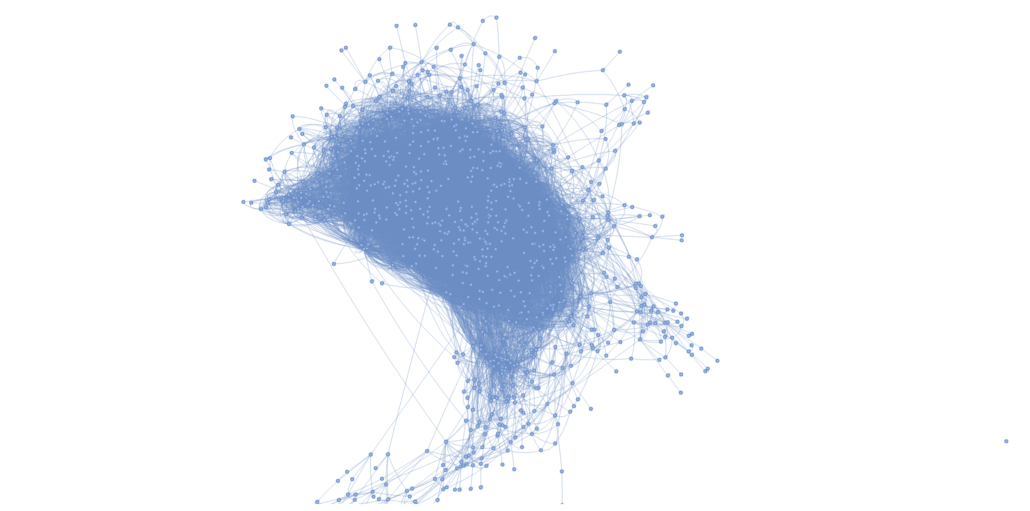Polars is the hot new Rust based Python Dataframe tool that is taking over the world and destryoing Pandas even as we speak. You want the quick and dirty introduction to Polars? Look no farther.
Have you ever wondered about being explicit in your code vs being vague? I think about this a lot as I’m writing code on a daily basis. I’ve found I like being explicit and verbose when writing code, rather than being vague in what I’m doing most of the time.
![]()
A few years ago I wasn’t sure, who was going to win, Golang seemed to be popular, and still is for that matter. When I first wrote a little Golang (~2+ years ago) I was just trying to see what the hype was all about. The funny thing is, at the time, and today, it seems like the Golang syntax is much simpler than Rust, easier to learn and pick up by far.
I never thought I would live to see the day, it’s crazy. I’m not sure who’s idea it was to make it possible to write Apache Spark with Rust, Golang, or Python … but they are all genius.
As of Apache Spark 3.4 it is now possible to use Spark Connect … a thin API client on a Spark Cluster ontop of the DataFrame API.
You can now connect backend systems and code, using Rust or Golang etc, to a Spark Server and run commands and get results remotely. Simply amazing. A new era of tools and products is going to be unleashed on us. We are no longer chained to the JVM. The walls have been broken down. The future is bright.

I’m not sure if others have this same problem, maybe they are lucky, they get to build in their favorite language 24/7, it’s their tool of choice. I feel like I have a great burden to bear, a heavy one. I love to write Rust … but I deploy Python. Even when I know I could write Rust … Python gets deployed.
![]()
Is there anything more Chad than Apache Airflow … and Rust? I think not you whimp. What two things do I love most? At the moment Rust and Airflow are at least somewhere at the top of that list. I wring my hands sometimes, wishing that things and technologies somehow come together into some bubbling soup and witches concoction from the depths. Then I had a strange thought while laying in bed one night.
What would happen if I ran my Rust inside my Apache Airflow? What would happen? Would the sun go dark? Would SQL Servers everywhere puke up their log files and go to Davey Jones’s locker? Birds fall from the sky? Why hasn’t anyone done this before, why isn’t anyone making this happen in real life?
![]()
So perhaps you’re thinking it’s time to use Rust on your next project. You’ll find plenty of primers on how to get your feet wet in the language (and if you somehow made it this far without that much, The Book is that starting point), but maybe you’re feeling a bit lost amidst the seas of opportunity. While still growing, the Rust ecosystem has many great existing options to pull from, and you’re now asking “How do I even?”
If you’re wondering how to make sense of your third-party library ecosystem, I hope to get you thinking like a Rustacean.
If you’re stuck on trying to find the right library for you, jump down to the section on crates for a primer on discoverability. Otherwise, if you already know what you’re working with and are looking to understand it, keep reading to see how I do it.
![]()
Sometimes it seems like the Data Engineering landscape is starting to shoot off into infinity. With the rise of Rust, new tools like DuckDB, Polars, and whatever else, things do seem to shifting at a fundamental level. It seems like there is someone at the base of a titering rock with a crowbar, picking and prying away, determined to spill tools like Java, Scala, Python, Spark, and Airflow, the things we’ve known and loved for years, from their lofty thrones.
Maybe they all have had their time in the Data Engineering sun, maybe it’s time to shake things up. It seems to be happening. It’s always hard to have those we hold dear be poked and prodded at. I’ve been using Spark since before it was cool, so when I started to hear the word Ballista start to show up here and there, I took note.
Besides, I’ve been dabbling my grubby little fingers in Rust for some months now, and have seen The Light. Is it possible I could be living at the dawn of a new era? A new and exciting frontier of Data Engineering, finally, after all this time? Could Rust really take over? Will something like Ballista pull that old Spark from its distributed processing tower and claim its rightful place?

I’ve been a dog licking my wounds for some time now. Over on my Substack newsletter, I’ve been doing a small series on DSA (Data Structures and Algorithms). I tackled some of the easier stuff first, like Linked Lists, Binary Search, and the like. What’s more, I actually did most of it in Rust, since I’ve possibly, maybe slightly, every so slightly, fallen in love with Rust.
Like most relationships, it vacillates between pure adoration and utter hatred, depending on the problem at hand. When I did a recent article on Graphs, Queues, and BSF, I attempted it in Rust, and was struck a mighty blow, that borrow checker had me down. It seemed doable, but at the time, under time pressure to get the Newsletter out, I reverted to Python and moved on.
Alas, I’m back again, a glutton for punishment. This time I thought I should try another crack at parsing a graph with Rust, but in a real-life situation, no more made-up stuff. Actual data, actual graph, here we go. All code is on GitHub.
Interesting links
Here are some interesting links for you! Enjoy your stay :)Pages
Categories
Archive
- March 2025
- February 2025
- January 2025
- December 2024
- November 2024
- October 2024
- September 2024
- August 2024
- July 2024
- June 2024
- May 2024
- April 2024
- March 2024
- February 2024
- January 2024
- December 2023
- November 2023
- October 2023
- September 2023
- August 2023
- July 2023
- June 2023
- May 2023
- April 2023
- March 2023
- February 2023
- January 2023
- December 2022
- November 2022
- October 2022
- September 2022
- August 2022
- July 2022
- June 2022
- May 2022
- April 2022
- March 2022
- February 2022
- January 2022
- December 2021
- November 2021
- October 2021
- September 2021
- August 2021
- July 2021
- June 2021
- May 2021
- April 2021
- March 2021
- February 2021
- January 2021
- December 2020
- November 2020
- October 2020
- September 2020
- August 2020
- July 2020
- June 2020
- May 2020
- April 2020
- March 2020
- January 2020
- December 2019
- November 2019
- October 2019
- September 2019
- August 2019
- July 2019
- May 2019
- March 2019
- February 2019
- January 2019
- December 2018
- November 2018
- October 2018
- September 2018
- July 2018
- June 2018
- May 2018
- April 2018
- March 2018
- February 2018




